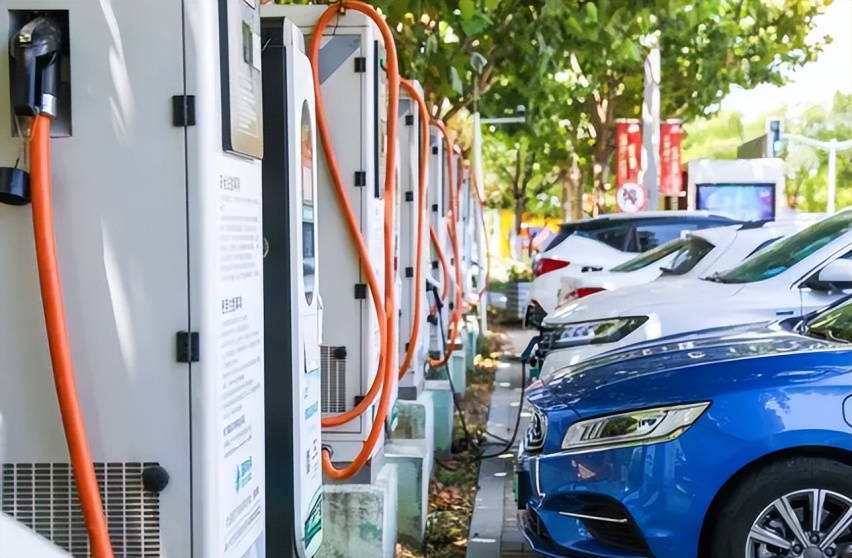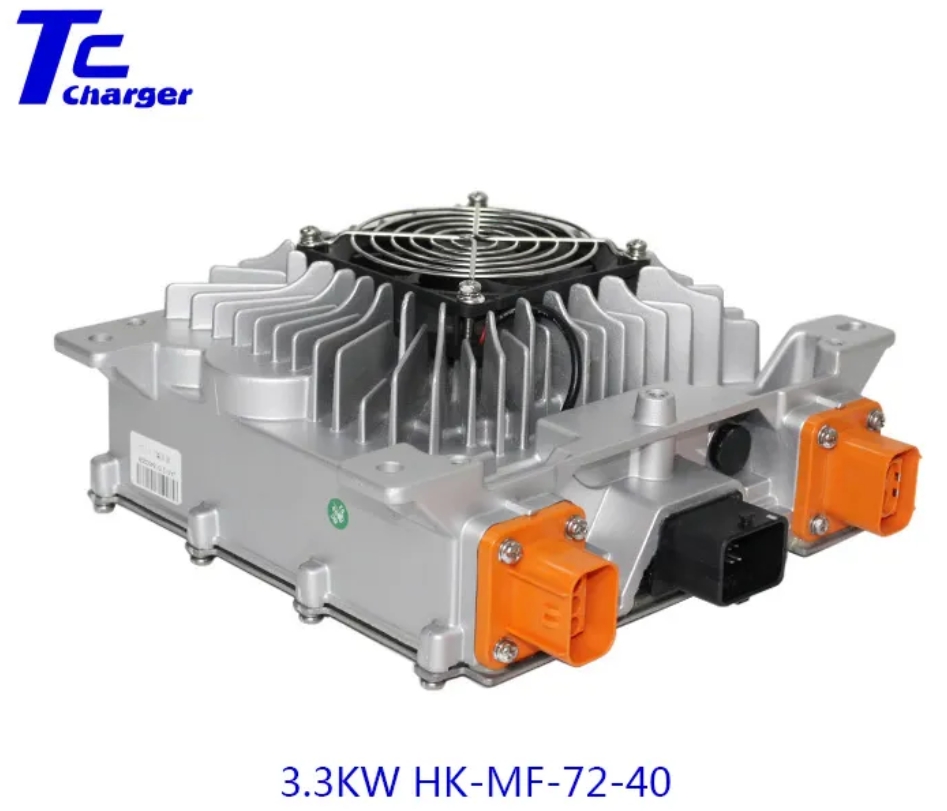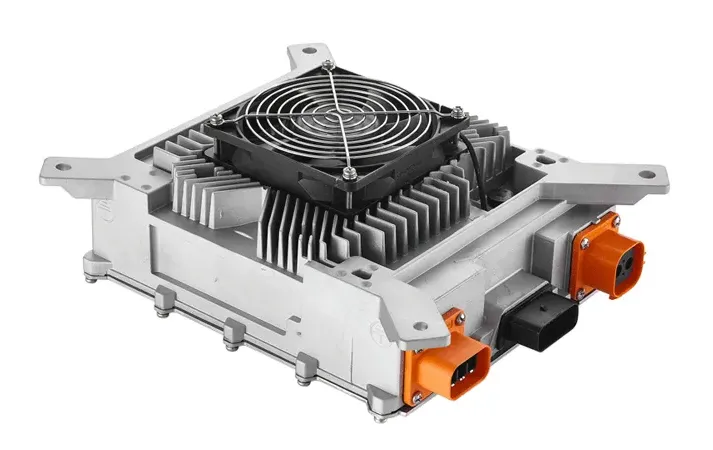Powering Up Electric Vehicles: The Evolution of On-Board Chargers Towards High Power
Sep 18,2023 | TCcharger
 Electric vehicles (EVs) have emerged as a compelling solution for sustainable transportation, offering reduced emissions and lower operational costs. A critical component that facilitates the growth and adoption of EVs is the On-Board Charger (OBC). In this blog post, we will explore the evolution of OBC chargers towards high power and their significance in the electric mobility revolution.
Electric vehicles (EVs) have emerged as a compelling solution for sustainable transportation, offering reduced emissions and lower operational costs. A critical component that facilitates the growth and adoption of EVs is the On-Board Charger (OBC). In this blog post, we will explore the evolution of OBC chargers towards high power and their significance in the electric mobility revolution.
The Role of On-Board Chargers
On-Board Chargers are vital components in electric vehicles responsible for converting alternating current (AC) from external power sources, such as charging stations or household outlets, into direct current (DC) to charge the vehicle's high-voltage battery. Over the years, OBC chargers have evolved significantly to meet the demands of the rapidly expanding EV market.
The Evolution of OBC Chargers
-
Increasing Charging Speeds: Early OBC chargers had relatively low power ratings, resulting in longer charging times. However, as technology advanced, OBC chargers began to offer higher power outputs, significantly reducing the time required to charge an EV. This evolution has made electric vehicles more convenient and practical for daily use.
-
Compact Design: Miniaturization and advancements in power electronics have enabled the development of more compact and lightweight OBC chargers. This not only saves space within the vehicle but also contributes to overall weight reduction, enhancing EV efficiency and performance.
-
Bidirectional Charging: Some modern OBC chargers have bidirectional capabilities, allowing them to not only charge the EV but also discharge energy back to the grid or power external devices. This technology, known as vehicle-to-grid (V2G) or vehicle-to-home (V2H), can help balance the grid and provide backup power during emergencies.
-
Enhanced Efficiency: High-power OBC chargers often incorporate advanced power conversion technologies like Silicon Carbide (SiC) or Gallium Nitride (GaN) semiconductors, which offer higher efficiency and faster switching speeds. These improvements reduce energy losses during the charging process, maximizing the EV's driving range.
-
Smart Charging Features: Modern OBC chargers often come equipped with smart charging features. These features include remote monitoring, over-the-air (OTA) software updates, and real-time data reporting. Smart OBCs can optimize charging based on grid conditions, electricity rates, and user preferences, making EV ownership more convenient and cost-effective.
-
Compatibility: High-power OBC chargers are designed to be compatible with various charging standards and connector types, ensuring that EV owners can easily access charging infrastructure regardless of their location or vehicle model.
The Significance of High-Power OBC Chargers
High-power OBC chargers are a game-changer for the EV industry for several reasons:
-
Reduced Charging Time: Faster charging speeds make EVs more practical for long-distance travel and reduce the need for lengthy pit stops during road trips.
-
Improved Convenience: High-power OBC chargers enhance the overall convenience of EV ownership by minimizing downtime for charging.
-
Grid Integration: Bidirectional charging capabilities enable EVs to act as grid assets, contributing to grid stability and supporting renewable energy integration.
-
Enhanced User Experience: Smart features and compatibility with various charging standards make high-power OBC chargers user-friendly and adaptable to diverse charging scenarios.
Conclusion
The evolution of On-Board Chargers towards high power is a testament to the continuous innovation in the electric vehicle industry. These chargers play a pivotal role in making EVs more accessible, convenient, and sustainable. As the demand for electric mobility continues to rise, we can expect further advancements in OBC technology, driving us closer to a future where electric vehicles are the norm rather than the exception.



